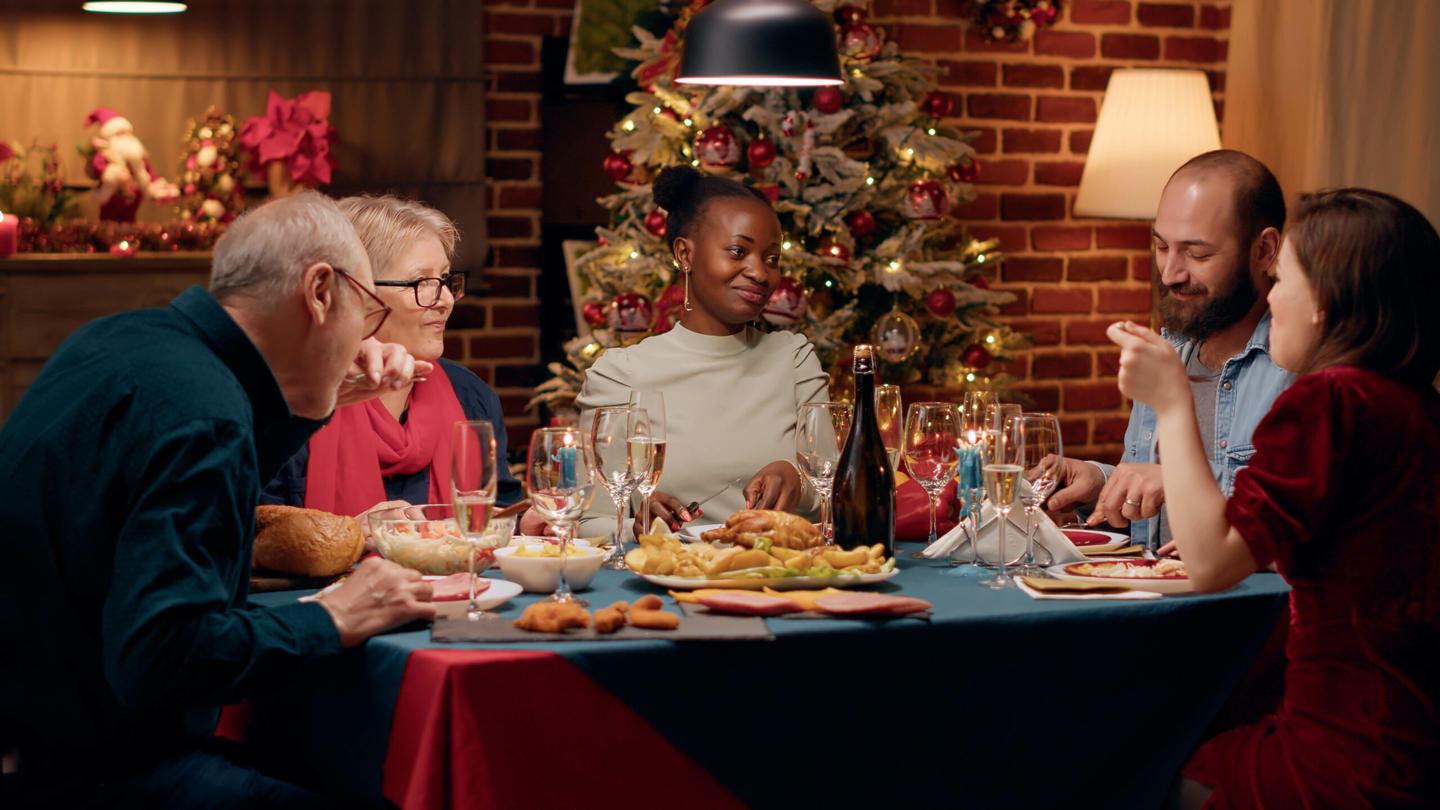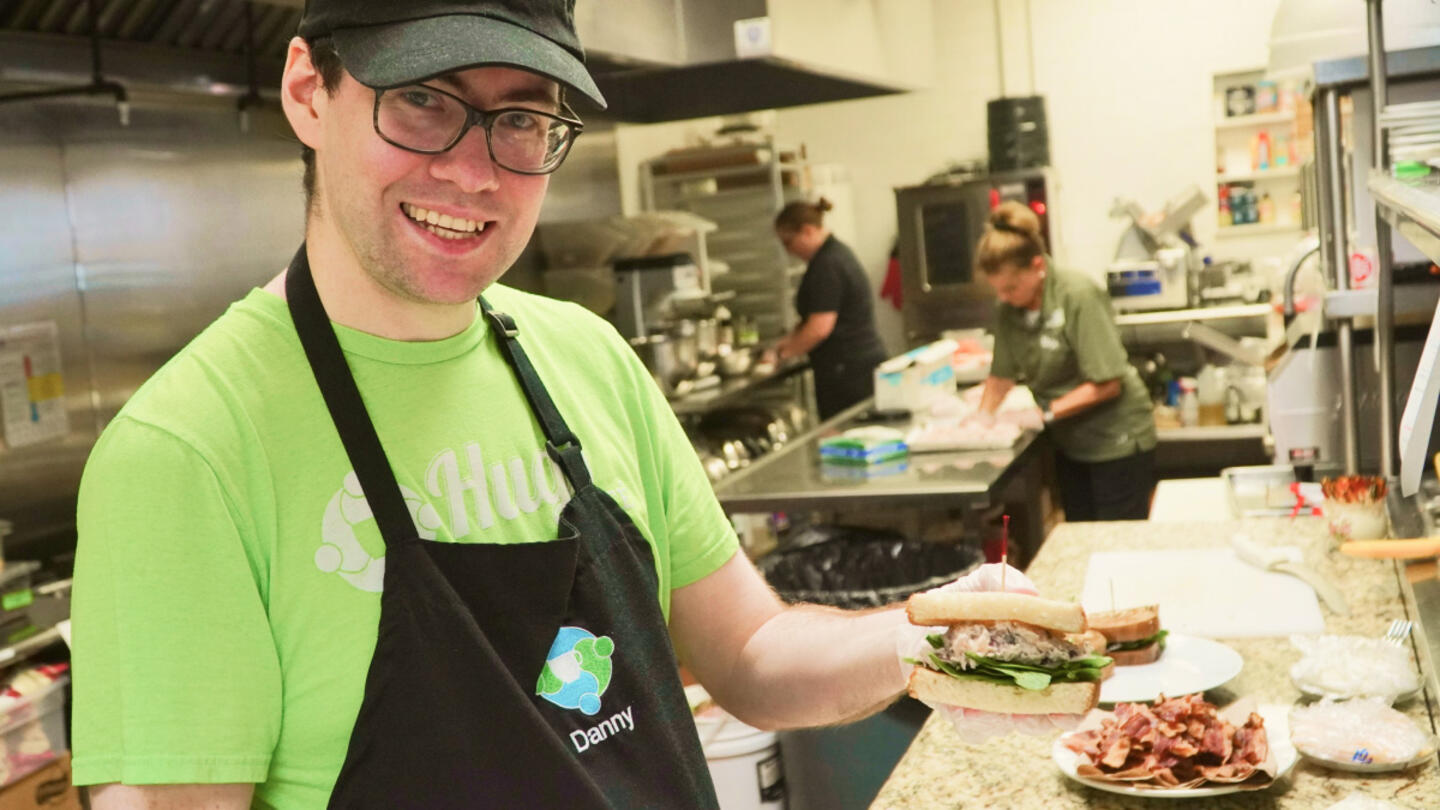This article was originally published by Stand Together Trust.
Nothing can ruin a holiday gathering or dinner party faster than a contentious conversation. Many of us may want to avoid discussing divisive issues with family and friends altogether, fearing a disagreement will alter a cherished relationship. Yet sometimes these conversations are unavoidable. And more to the point, talking with our close family and friends can be eye-opening and help to bridge divides in today's polarized climate.
So, we've rounded up some best practices from scholars, storytellers, conflict theorists, and community leaders for talking about even the most challenging issues civilly and productively. Tis the season to give thanks, and we're grateful to connect more people with these partners.
Tip #1: Use stories to build empathy and bridge divides
For many of us, there is often a personal story attached to our deeply held beliefs. Listening to others' stories and telling our own can naturally lower the temperature of a conversation.
That's what Narrative 4, a Stand Together community partner, has found in its work. Since 2012, Narrative 4 has led a classroom program that invites students to grow in empathy for others' experiences and opinions through storytelling. Narrative 4 reports that "according to research published in Ethical Ela, story exchanges help students 'co-construct knowledge, increase empathy and inclusion, and empower themselves in their communities to succeed in both school and life.'"
The "One Small Step" project has similar findings. "Created by StoryCorps, One Small Step is an effort to remind the country of the humanity in all of us, even those with whom we disagree," their website explains. "The initiative brings strangers with different political views together to record a 50-minute conversation -- not to debate politics, but to learn who we are as people. Audio recordings of each interview are archived at the Library of Congress."
The program, which received funding from STT, affirms that "Contact Theory" -- the idea that it's hard to hate up close -- is one of the keys to bridging divides and even forging friendships between people with differing political views. Yet, the participants don't discuss politics. They focus the conversation on who they are as people. Difficult issues inevitably arise, and the result is most often more curious, open-minded, and empathetic discourse. As of July 2022, more than 6000 individuals were on a waiting list to be paired for a conversation. Story Corps also offers an app specifically to be used during the holidays. It's filled with stories, questions to ask loved ones, and an option to record your own loved ones' stories.
What could the findings of these two programs mean for family and friends gathered around a holiday table? Perhaps they could be a reminder that people want to understand others who have different deeply held beliefs. When what we're all seeking is solving some of the greatest problems of the day, taking a few moments to consider how someone else's experiences form their beliefs could play a key factor in making formerly contentious conversations a bit more civil.
When a conversation over the holidays starts to get heated, toxic, or reduced to repeating talking points, change gears. Ask each dinner party guest to tell a personal story related to one of their deeply held beliefs. Other guests get to listen and reflect on what they heard. You might find that the bridges that divide us are not as wide as we sometimes think.
Tip #2: Embrace silence to take down the temperature
In a world where tweets and stories can go viral online in minutes, we're used to quick conversations that move fast and can even change topics rapidly. Yet, when discussing divisive issues, the topics are often nuanced, and reflection is an asset. Silence slows down conversations and makes reflection possible.
This tip comes from Essential Partners, a STT grantee that uses lessons from conflict resolution and marriage counseling to conduct workshops and trainings, produce resources, and offer coaching, to create "richer, healthier, more inclusive dialogue." This strengthens relationships between people and helps individuals gain insight into themselves as they work to solve today's most pressing problems.
This video about the uses of silence in difficult conversations comes from the Essential Partners resource library.
Key takeaways from the video:
- "Silence gives some people time to find the right words."
- "It lets people reflect on what they actually think and feel, rather than reacting."
- "It allows someone to process new information."
Tip #3: Add collaboration to your conversation
Work together while you talk. Join a turkey trot, build a gingerbread house, or sort the Tupperware drawer together. What you do matters less than doing it together.
Research by scholars Kurt Gray, Julianna Schroeder, and others have found that common goals and group collaboration are key factors in diminishing negative feelings and improving interactions between people with differing strongly held beliefs. Working on projects together can help family and friends build trust and strengthen relationships. You can do one at home or go out and join others in the community. Looking for a place to start? Princeton's Bridging Divides Initiative, a grantee of STT, offers a map to find groups in your community that offer opportunities for family, friends, and neighbors to work across differences.
When it comes down to it, most people want the same thing -- to find solutions to some of the most pressing problems in society today. We're more likely to find them when we focus less on how differing perspectives are wrong and more on how we can combine ideas and experiences to develop solutions unimagined.
***
The Stand Together community helps America's boldest changemakers tackle the root causes of our country's biggest problems.
Learn more about Stand Together's efforts to build strong and safe communities, and explore ways you can partner with us.




